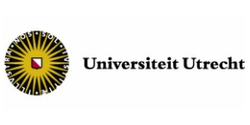PhD Position: Molecular Mechanisms of Protein Biogenesis
Updated: 16 May 2024
Are you curious about how cells produce functional proteins? Do you want to push the envelope of applying single-molecule techniques to complex macromolecular systems? Join our single-molecule lab to study co-translational folding and chaperone function.
Your job
We are working at the interface of biochemistry, molecular biology and biophysics to follow the journey of nascent proteins toward their functional structures as they emerge from the ribosome. These mechanistic studies pave the way for targeted interventions against protein misfolding and perturbed protein homeostasis which are important for a number of aging-related diseases, including neurodegeneration, and several forms of cancer.
The research group of Professor Christian Kaiser, which just relocated from Johns Hopkins University to Utrecht, has established single-molecule optical tweezers assays for probing nascent protein folding on the ribosome. These studies have shown how the ribosome and molecular chaperones counter misfolding and help large, multi-domain proteins attain their functional structures. The group is now combining mechanical manipulation with single-molecule fluorescence detection. These in vitro studies are complemented by cellular assays. Collectively, the work is revealing fundamental principles of cellular protein biogenesis.
As a PhD in our group, you will:
- join a collaborative group working on projects around protein synthesis and folding;
- work in a stimulating scientific environment with top-notch instrumentation and infrastructure;
- master the use of optical tweezers with single-molecule fluorescence detection;
- utilise modern biochemical and molecular biology approaches for sample preparation;
- lead your own project around protein translation, molecular chaperone function and protein folding;
- collect, analyse and interpret single-molecule data and prepare your results for publications and presentations at national and international scientific meetings.
The position is embedded in the research group of Professor Christian Kaiser at the Bijvoet Centre for Biomolecular Research with state-of-the-art facilities, including brand-new molecular biology/biochemistry equipment and single-molecule instrumentation.
Requirements:
We are looking for enthusiastic, highly motivated experimentalists who are eager to participate in our research.
Ideally, you meet several or all of the following criteria:
- a Master's degree in an experimental field related to Molecular Biology, Biochemistry or Biophysics (required);
- a passion for research in biochemistry or biophysics;
- basic molecular biology and biochemistry skills;
- an inclination toward quantitative analyses.
- good communication skills and an interest in working with people from different backgrounds.
Previous experience with single-molecule techniques and/or quantitative biophysical methods is welcome but not required.
We foster diversity and encourage applications from female candidates.
Salary Benefits:
We offer:
- a world class academic environment where English is the main language and where you receive academic training in our Molecular Life Sciences Programme;
- a supportive environment with a commitment to academic development and maintaining a healthy work-life balance;
- mentoring that emphasises personal, professional and scientific growth;
- a position for four years;
- a fulltime working week and a gross monthly salary between €2,770 and €3,539 in the case of full-time employment (salary scale P under the Collective Labour Agreement for Dutch Universities (CAO NU));
- 8% holiday pay and 8.3% year-end bonus;
- a pension scheme, partially paid parental leave and flexible terms of employment based on the CAO NU.
In addition to the terms of employment laid down in the CAO NU, Utrecht University has a number of schemes and facilities of its own for employees. This includes schemes facilitating professional development, leave schemes and schemes for sports and cultural activities, as well as discounts on software and other IT products. We also offer access to additional employee benefits through our Terms of Employment Options Model. In this way, we encourage our employees to continue to invest in their growth. For more information, please visit Working at Utrecht University.
36 - 40 hours per week
Padualaan 8

